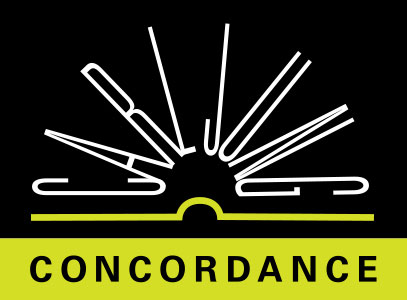Although dogma, like mythology in general, expresses the quintessence of inner experience and thus formulates the operative principles of the objective psyche, i.e., the collective unconscious, it does so by making use of a language and outlook that have become alien to our present day of thinking:
RIGIDITY OF A PREJUDICE
The word “dogma” has even acquired a somewhat unpleasant sound and frequently serves merely to emphasize the rigidity of a prejudice. For most people living in the West, dogma has lost its meaning as a symbol for a virtually unknowable and yet “actual”i.e., operativefact
CW9.2 ¶ 271DOGMA SYMBOL HAS FADED
Even in theological circles any real discussion of dogma had as good as ceased until the recent papal declarations, a sign that the symbol has begun to fade, if it is not already withered
CW9.2 ¶ 271This is a dangerous development for our psychic health, as we know of no other symbol that better expresses the world of the unconscious
CW9.2 ¶ 271More and more people then begin looking round for exotic ideas in the hope of finding a substitute, for example in India. This hope is delusory, for though the Indian symbols formulate the unconscious just as well as the Christian ones do, they each exemplify their own spiritual past
CW9.2 ¶ 271The Indian teachings constitute the essence of several thousand years of experience of Indian life. Though we can learn a lot from Indian thought, it can never express the past that is stored up within us. The premise we start from is and remains Christianity, which covers anything from eleven to nineteen centuries of Western life
CW9.2 ¶ 271I mention these facts in order to illustrate how thin is the wall that separates us from pagan times. Besides that, the Germanic peoples never developed organically out of primitive polydemonism to polytheism and its philosophical subtleties, but in many places accepted Christian monotheism and its doctrine of redemption only at the sword's point of the Roman legions, as in Africa the machine-gun is the latent argument behind the Christian invasion
CW9.2 ¶ 272CHRISTIANITY REQUIRES
AN INFLEXIBILITY OF DOGMA
Doubtless the spread of Christianity among barbarian peoples not only favoured, but actually necessitated, a certain inflexibility of dogma. Much the same thing can be observed in the spread of Islam, which was likewise obliged to resort to [religious] fanaticism and rigidity
CW9.2 ¶ 272In India the symbol [dogma] developed far more organically and pursued a less disturbed course. Even the great Hindu Reformation, Buddhism, is grounded, in true Indian fashion, on yoga, and, in India at least, it was almost completely reassimilated by Hinduism in less than a millennium, so that today the Buddha himself is enthroned in the Hindu pantheon as the avatar of Vishnu, along with Christ, Matsya (the fish), Kurma (the tortoise), Vamana (the dwarf), and a host of others
CW9.2 ¶ 272The bridge from dogma to the inner experience of the individual has broken down. Instead, dogma is “believed;” it is hypostatized, as the Protestants hypostatize the Bible, illegitimately making it the supreme authority, regardless of its contradictions and controversial interpretations. (As we know, anything can be authorized out of the Bible)
CW9.2 ¶ 276Dogma no longer formulates anything, no longer expresses anything; it has become a tenet to be accepted in and for itself, with no basis in any experience that would demonstrate its truth. Indeed, faith has itself become that experience
CW9.2 ¶ 276This is not to contest the legitimacy and importance of dogma. The Church is not concerned only with people who have a religious life of their own, but also with those from whom no more can be expected than that they should hold a tenet to be true and confess themselves satisfied with this formula. Probably the great majority of “believers” do not get beyond this level. For them dogma retains its role as a magnet and can therefore claim to be the “final” truth
CW9.2 ¶ 276It may strike my reader as strange that a physician and psychologist should be so insistent about dogma. But I must emphasize it, and for the same reasons that once moved the alchemist to attach special importance to his “theoria.” His doctrine was the quintessence of the symbolism of unconscious processes, just as the dogmas are a condensation or distillation of “sacred history,” of the myth of the divine being and his deeds
CW9.2 ¶ 278If we wish to understand what alchemical doctrine means, we must go back to the historical as well as the individual phenomenology of the symbols, and if we wish to gain a closer understanding of dogma, we must perforce consider first the myths of the Near and Middle East that underlie Christianity, and then the whole of mythology as the expression of a universal disposition in man
CW9.2 ¶ 278This disposition I have called the collective unconscious, the existence of which can be inferred only from individual phenomenology. In both cases the investigator comes back to the individual, for what he is all the time concerned with are certain complex thought-forms, the archetypes, which must be conjectured as the unconscious organizers of our ideas
CW9.2 ¶ 278